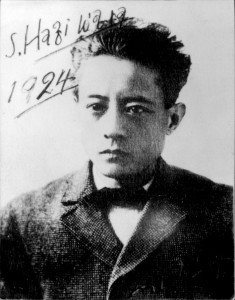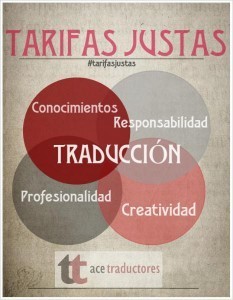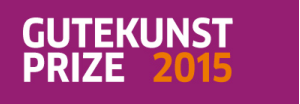Susan Bernofsky's Blog, page 44
April 9, 2015
Where Are the Women in Translation?
 A year and a half ago, inspired by a Words Without Borders dispatch (Where Are the Women in Translation?) by Alison Anderson, I published a blog post on the need to start a prize for women writers in translation, based on the observations many of us were making that women were seriously underrepresented in the major translation prizes. (To be clear, what’s primarily at issue here is the gender of the writers whose work is being translated and selected for translation prizes, rather than that of the translators themselves. Many more women are currently translating than translated.) Katy Derbyshire had just called for establishing a translation prize for women writers in the U.K., and it occurred to me to try to do the same in the U.S. But there was one big structural difference to contend with: the U.K. already had a major literary prize for women writers (the Bailey’s Women’s Prize for Fiction, which has been around for years under several different names). The U.S. did not. And that was strange for a number of reasons, but it also made it strange to be pushing for a women’s translation prize when there wasn’t even a major U.S. prize for women’s writing in English. (The Bailey’s Prize in the U.K. leaves writers of genres other than fiction out in the cold, but at least it’s something.)
A year and a half ago, inspired by a Words Without Borders dispatch (Where Are the Women in Translation?) by Alison Anderson, I published a blog post on the need to start a prize for women writers in translation, based on the observations many of us were making that women were seriously underrepresented in the major translation prizes. (To be clear, what’s primarily at issue here is the gender of the writers whose work is being translated and selected for translation prizes, rather than that of the translators themselves. Many more women are currently translating than translated.) Katy Derbyshire had just called for establishing a translation prize for women writers in the U.K., and it occurred to me to try to do the same in the U.S. But there was one big structural difference to contend with: the U.K. already had a major literary prize for women writers (the Bailey’s Women’s Prize for Fiction, which has been around for years under several different names). The U.S. did not. And that was strange for a number of reasons, but it also made it strange to be pushing for a women’s translation prize when there wasn’t even a major U.S. prize for women’s writing in English. (The Bailey’s Prize in the U.K. leaves writers of genres other than fiction out in the cold, but at least it’s something.)
Fortunately we now have national prizes for women’s literature again, sponsored by the wonderful ladies who brought us the VIDA Count. In fact the first annual 2015 VIDA Award recipients are just being announced this very evening at the AWP in Minneapolis. Wish I was there. So, thanks to VIDA, there’s now a nice, well-publicized U.S. context for a new feminocentric translation prize. Which means it’s time to start working in earnest to organize one. The next step will be at this year’s PEN World Voices Festival, where I’ll be on a panel on May 9 entitled Who We Talk about When We Talk about Translation: Women’s Voices, with VIDA veteran Jen Fitzgerald, Rob Spillman, and Véronique Tadjo, moderated by Margaret Carson (co-chair of the PEN Translation Committee) and Alta Price. We’ll no doubt be discussing the latest numbers and brainstorming what to do about them. If you’re in the NYC area, please come out and help us!
Meanwhile there are some new numbers just in on the U.K. side, painstakingly assembled by the never-flagging Katy Derbyshire, who combed through a variety of publication records to discover that of all the books in translation published in the U.K. in 2013, only a quarter of them were works by women authors. You’ll find her report (and a list of all the books) here. Brava, Katy, and thank you for your Herculean data-gathering and -analyzing labors. (And for those of you near London, Katy will be speaking about this on a panel at the London Book Fair next week.)
And make sure to check back later on the VIDA website to see who this year’s prizewinning women are! (Or, if you’re impatient, click here.)
The post Where Are the Women in Translation? appeared first on TRANSLATIONiSTA.
April 7, 2015
Best Translated Book Award 2015 Longlists
 While most of the main longlists this year were announced a few weeks ago, the Best Translated Book Award is fashionably late, with much tantalizing stirring-up of rumors and buzz on the Three Percent blog, where readers were offered prizes if they successfully guessed a complete longlist in either fiction or poetry (no one quite managed it).
While most of the main longlists this year were announced a few weeks ago, the Best Translated Book Award is fashionably late, with much tantalizing stirring-up of rumors and buzz on the Three Percent blog, where readers were offered prizes if they successfully guessed a complete longlist in either fiction or poetry (no one quite managed it).
So we’ve been waiting long enough – let’s have them already! All right, voila:
POETRY
Collected Poems by Rainer Brambach, translated from the German by Esther Kinsky (Switzerland, Seagull Books)
Diorama by Rocío Cerón, translated from the Spanish by Anna Rosenwong (Mexico, Phoeneme)
Nothing More to Lose by Najwan Darwish, translated from the Arabic by Kareem James Abu-Zeid (Palestine, NYRB)
Lazy Suzie by Suzanne Doppelt, translated from the French by Cole Swenson (France, Litmus Press)
Openwork by André du Bouchet, translated from the French by Paul Auster and Hoyt Rogers (France, Yale University Press)
The Posthumous Life of RW by Jean Frémon, translated from the French by Cole Swensen (France, Omnidawn)
I Am the Beggar of the World: Landays from Contemporary Afghanistan, edited and translated from the Pashto by Eliza Griswold (Afghanistan, FSG)
Sorrowtoothpaste Mirrorcream by Kim Hyesoon, translated from the Korean by Don Mee Choi (South Korea, Action Books)
Where Are the Trees Going? by Venus Khoury-Ghata, translated from the French by Marilyn Hacker (Lebanon, Curbstone)
Rain of the Future by Valerie Mejer, translated from the Spanish by A. S. Zelman-Doring, Forrest Gander, and C.D. Wright (Mexico, Action Books)
Diana’s Tree by Alejandra Pizarnik, translated from the Spanish by Yvette Siegert (Argentina, Ugly Duckling)
Compleat Catalogue of Comedic Novelties by Lev Rubinstein, translated from the Russian by Philip Metres and Tatiana Tulchinsky (Russia, Ugly Duckling)
In Praise of Poetry by Olga Sedakova, translated from the Russian by Caroline Clark, Ksenia Golubovich, and Stephanie Sandler (Russia, Open Letter)
Soy Realidad by Tomaž Šalamun, translated from the Slovenian by Michael Thomas Taren (Slovenia, Dalkey Archive)
End of the City Map by Farhad Showghi, translated from the German by Rosmarie Waldrop (Germany, Burning Deck)
Guantanamo by Frank Smith, translated from the French by Vanessa Place (France, Les Figues)
Salsa by Hsia Yü, translated from the Chinese by Steve Bradbury (Taiwan, Zephyr Press)
FICTION
Baboon by Naja Marie Aidt, translated from the Danish by Denise Newman (Denmark, Two Lines Press)
The Author and Me by Éric Chevillard, translated from the French by Jordan Stump (France, Dalkey Archive Press)
Fantomas Versus the Multinational Vampires by Julio Cortázar, translated from the Spanish by David Kurnick (Argentina, Semiotext(e))
Pushkin Hills by Sergei Dovlatov, translated from the Russian by Katherine Dovlatov (Russia, Counterpoint Press)
1914 by Jean Echenoz, translated from the French by Linda Coverdale (France, New Press)
Street of Thieves by Mathias Énard, translated from the French by Charlotte Mandell (France, Open Letter Books)
Those Who Leave and Those Who Stay by Elena Ferrante, translated from the Italian by Ann Goldstein (Italy, Europa Editions)
Things Look Different in the Light by Medardo Fraile, translated from the Spanish by Margaret Jull Costa (Spain, Pushkin Press)
Monastery by Eduardo Halfon, translated from the Spanish by Lisa Dillman and Daniel Hahn (Guatemala, Bellevue Literary Press)
Letters from a Seducer by Hilda Hilst, translated from the Portuguese by John Keene (Brazil, Nightboat Books)
Harlequin’s Millions by Bohumil Hrabal, translated from the Czech by Stacey Knecht (Czech Republic, Archipelago Books)
Rambling On: An Apprentice’s Guide to the Gift of the Gab by Bohumil Hrabal, translated from the Czech by David Short (Czech Republic, Karolinum Press)
The Woman Who Borrowed Memories by Tove Jansson, translated from the Swedish by Thomas Teal and Silvester Mazzarella (Finland, NYRB)
Works by Edouard Levé, translated from the French by Jan Steyn (France, Dalkey Archive Press)
Faces in the Crowd by Valeria Luiselli, translated from the Spanish by Christina MacSweeney (Mexico, Coffee House Press)
Adam Buenosayres by Leopoldo Marechal, translated from the Spanish by Norman Cheadle and Sheila Ethier (Argentina, McGill-Queen’s University Press)
Last Words from Montmartre by Qiu Miaojin, translated from the Chinese by Ari Larissa Heinrich (Taiwan, NYRB)
Winter Mythologies and Abbots by Pierre Michon, translated from the French by Ann Jefferson (France, Yale University Press)
Our Lady of the Nile by Scholastique Mukasonga, translated from the French by Melanie Mauthner (Rwanda, Archipelago Books)
Talking to Ourselves by Andrés Neuman, translated from the Spanish by Nick Caistor and Lorenza Garcia (Argentina, FSG)
Granma Nineteen and the Soviet’s Secret by Ondjaki, translated from the Portuguese by Stephen Henighan (Angola, Biblioasis)
La Grande by Juan José Saer, translated from the Spanish by Steve Dolph (Argentina, Open Letter Books)
Paris by Marcos Giralt Torrente, translated from the Spanish by Margaret Jull Costa (Spain, Hispabooks)
Snow and Shadow by Dorothy Tse, translated from the Chinese by Nicky Harman (Hong Kong, East Slope Publishing)
The Last Lover by Can Xue, translated from the Chinese by Annelise Finegan Wasmoen (China, Yale University Press)
Note that Cole Swensen and Margaret Jull Costa have two books each on these lists (and guess who the RW referred to in the title of the Jean Frémon book is)! More info on both longlists (plus pretty pictures of all the book covers) can be found on the BTBA website.
The shortlists in both poetry and fiction will be announced on May 5, and the winners will be announced on May 27 during BookExpo America. I’m hoping there’ll be a party.
The post Best Translated Book Award 2015 Longlists appeared first on TRANSLATIONiSTA.
April 3, 2015
What Should Translators Get Paid for Their Work?
 “How much should I expect to get paid?” is one of the questions I’m most frequently asked by emerging translators, and it’s hard to know what to answer. In my experience, payments for translations vary enormously depending on the publisher, the type of project and the reputation of the translator. Add to that the fact that no one likes to talk about what they get paid for anything they do (not just translations), and it can be hard to get one’s bearings. Well, I’m pleased to report that the Three Percent Podcast series has just put out a conversation on the topic featuring 3%’s usual suspects Chad Post (publisher of Open Letter Books) and Tom Roberge (Deputy Director of Albertine Books), joined by Alex Zucker, Co-Chair of the PEN Translation Committee. This is the most frank and complete discussion of rates I have ever seen in print, so I strongly recommend you check it out. Among other things, you will learn the difference between translators and dockworkers, and between translations and refrigerators. Oh, and in case you were wondering, pretty much no one is getting rich in the translated literature business.
“How much should I expect to get paid?” is one of the questions I’m most frequently asked by emerging translators, and it’s hard to know what to answer. In my experience, payments for translations vary enormously depending on the publisher, the type of project and the reputation of the translator. Add to that the fact that no one likes to talk about what they get paid for anything they do (not just translations), and it can be hard to get one’s bearings. Well, I’m pleased to report that the Three Percent Podcast series has just put out a conversation on the topic featuring 3%’s usual suspects Chad Post (publisher of Open Letter Books) and Tom Roberge (Deputy Director of Albertine Books), joined by Alex Zucker, Co-Chair of the PEN Translation Committee. This is the most frank and complete discussion of rates I have ever seen in print, so I strongly recommend you check it out. Among other things, you will learn the difference between translators and dockworkers, and between translations and refrigerators. Oh, and in case you were wondering, pretty much no one is getting rich in the translated literature business.
This conversation originated as a podcast on the Three Percent Blog, and now a transcript has been published on the PEN American Center website, so if you’d rather read than listen, you can do so here.
The post What Should Translators Get Paid for Their Work? appeared first on TRANSLATIONiSTA.
Translation Panels at AWP 2015
 For the first time in a couple of years, I won’t be going to the Associated Writing Programs conference this year (April 8-11 in Minneapolis). I was planning to put together my usual yearly rundown of translation events all the same, but then I saw that the American Literary Translators Association had beaten me to it, publishing their own Guide to Translation Events at AWP 2015. Since I am strongly of the opinion that wheels need be invented only once, I will refrain from assembling my own superfluous list and instead refer you to theirs. You’ll see that the list is long indeed, suggesting that interest in literary translation is continuing to grow among the charmingly bookish. I’m glad to see it. What’s more, ALTA, the main professional organization for literary translators in the U.S., is now an official literary partner at the AWP conference and has sponsored five of the events (and co-sponsored a sixth with CLMP):
For the first time in a couple of years, I won’t be going to the Associated Writing Programs conference this year (April 8-11 in Minneapolis). I was planning to put together my usual yearly rundown of translation events all the same, but then I saw that the American Literary Translators Association had beaten me to it, publishing their own Guide to Translation Events at AWP 2015. Since I am strongly of the opinion that wheels need be invented only once, I will refrain from assembling my own superfluous list and instead refer you to theirs. You’ll see that the list is long indeed, suggesting that interest in literary translation is continuing to grow among the charmingly bookish. I’m glad to see it. What’s more, ALTA, the main professional organization for literary translators in the U.S., is now an official literary partner at the AWP conference and has sponsored five of the events (and co-sponsored a sixth with CLMP):
Qu’est-ce que c’est “Publish”? How Publishers and Translators Work Together, Thursday, April 9, 10:30 a.m.
The Making of the Originals, Thursday, April 9, 1:30 p.m.
Experiments in Translation, Friday April 10, 8:00 a.m.
Translation as Pure Writing II: Poetry, Friday April 10, 11:00 a.m.
Teaching Translated Texts, Saturday, April 11, 9:30 a.m.
Publishing Translations: The Small Press, Saturday, April 11, 2:00 p.m.
You’ll find details on these and all the other fine AWP translation-flavored events here. I never promised you wouldn’t have to get up early if you want to be a translator. And since you’re up anyhow, drop by booth 1407 to learn about ALTA, play the fun new game Translation Bookfair Bingo, and possibly walk away with some excellent, probably translated prizes.
The post Translation Panels at AWP 2015 appeared first on TRANSLATIONiSTA.
March 27, 2015
Translation on Tap in NYC, April 1 – 15, 2015
I’m waiting for some good April Fools events to turn up, but meanwhile this is what I’ve got on tap so far:
Wednesday, April 8:
Fundraiser for the Trafika Radio project – a reading featuring translators Katrine Øgaard Jensen, Alex Zucker, and Jennifer Zoble as well as Armenian poet Marine Petrossian, with Trafika’s Andrew Singer as M.C. Word Up Community Bookshop, 2113 Amsterdam Ave (corner of 165th), $10 donation suggested, more information here. 7:00 – 9:00 p.m.
The post Translation on Tap in NYC, April 1 – 15, 2015 appeared first on TRANSLATIONiSTA.
March 24, 2015
Some Longlists, Spring 2015
The Man Booker International Prize just posted its list of finalists today, which reminds me how remiss I’ve been in communicating all the other longlist  information that’s been coming out for the past few weeks. So without further ado, let the lists begin!
information that’s been coming out for the past few weeks. So without further ado, let the lists begin!
1. The Man Booker International Prize – a hefty (£60,000) prize for a body of work. This year 80% of the finalists are writers of languages other than English, making this the most translation-friendly Man Booker longlist to date. What’s more, if a foreign-language writer wins the prize, s/he is invited to select one of her/his translators to receive a supplementary £15,000 award. Nice!
César Aira (Argentina)
Hoda Barakat (Lebanon)
Maryse Condé (Guadeloupe)
Mia Couto (Mozambique)
Amitav Ghosh (India)
Fanny Howe (United States of America)
Ibrahim al-Koni (Libya)
László Krasznahorkai (Hungary)
Alain Mabanckou (Republic of Congo)
Marlene van Niekerk (South Africa)
I suppose this is technically a shortlist rather than a longlist. The winner of the Man Booker International Prize will be announced May 19.
2. PEN American Center Translation Prizes:
The PEN Award for Poetry in Translation:
Sorrowtoothpaste Mirrorcream by Kim Hyesoon (Action Books), translated from the Korean by Don Mee Choi
Love Poems by Bertolt Brecht (Liveright), translated from the German by David Constantine and Tom Kuhn
I Am the Beggar of the World (Farrar, Straus and Giroux), translated from the Pashto by Eliza Griswold
Sor Juana Inés de la Cruz by Juana Inés de la Cruz (W. W. Norton & Company), translated from the Spanish by Edith Grossman
Where Are the Trees Going? by Venus Khoury-Ghata (Northwestern University Press), translated from the French by Marilyn Hacker
Breathturn into Timestead by Paul Celan (Farrar, Straus and Giroux), translated from the German by Pierre Joris
Guantanamo by Frank Smith (Les Figues Press), translated from the French by Vanessa Place
Skin by Tone Škrjanec (Tavern Books), translated from the Slovenian by Matthew Rohrer and Ana Pepelnik
Diana’s Tree by Alejandra Pizarnik (Ugly Duckling Presse), translated from the Spanish by Yvette Siegert
Autoepitaph by Reinaldo Arenas (University Press of Florida), translated from the Spanish by Kelly Washbourne
Trans-Atlantyk by Witold Gombrowicz (Yale/Margellos), translated from the Polish by Danuta Borchardt
The Gray Notebook by Josep Pla (New York Review Books), translated from the Catalan by Peter Bush
The Symmetry Teacher by Andrei Bitov (Farrar, Straus and Giroux), translated from the Russian by Polly Gannon
The Master of Confessions by Thierry Cruvellier (Ecco), translated from the French by Alex Gilly
The Man Who Loved Dogs by Leonardo Padura (Farrar, Straus and Giroux), translated from the Spanish by Anna Kushner
I Ching (Viking Books), translated from the Chinese by John Minford
Baboon by Naja Marie Aidt (Two Lines Press), translated from the Danish by Denise Newman
Texas: The Great Theft by Carmen Boullosa (Deep Vellum Publishing), translated from the Spanish by Samantha Schnee
Self-Portrait in Green by Marie NDiaye (Two Lines Press), translated from the French by Jordan Stump
The Woman Who Borrowed Memories by Tove Jansson (New York Review Books), translated from the Swedish by Thomas Teal & Silvester Mazzarella
Both PEN shortlists will be announced on April 15, the winners on May 13.
My enthusiasm at seeing these two lists was dampened by the announcement last week that PEN had selected Penguin Random House CEO Markus Dohle to be celebrated as its “Publisher Honoree” at the 2015 PEN Gala this May. Readers of this blog know that Penguin Random House – currently the world’s largest trade publisher – recently slashed the pay of all its literary translators in Spain.
3. The Independent Foreign Fiction Prize
I’m particularly excited about this one, because a book I translated is on it. It’s a very German-happy list; five of the 15 books on the longlist are translations from German. (I’ve borrowed this copy of the list from The Guardian, so the links are to reviews in that paper.) This one comes with £5000 each for author and translator, plus a bottle of bubbly.
Colorless Tsukuru Tazaki and His Years of Pilgrimage by Haruki Murakami (Harvill Secker), translated from Japanese by Philip Gabriel
Boyhood Island by Karl Ove Knausgaard (Harvill Secker), translated from Norwegian by Don Bartlett
The End of Days by Jenny Erpenbeck (Portobello Books) translated from German by Susan Bernofsky
The Giraffe’s Neck by Judith Schalansky (Bloomsbury), translated from German by Shaun Whiteside
F by Daniel Kehlmann (Quercus), translated from German by Carol Brown Janeway
Look Who’s Back by Timur Vermes (MacLehose Press), translated from German by Jamie Bulloch
Tiger Milk by Stefanie de Velasco (Head of Zeus), translated from German by Tim Mohr
In the Beginning Was the Sea by Tomás González (Pushkin Press), translated from Spanish by Frank Wynne
The Ravens by Tomas Bannerhed (The Clerkenwell Press), translated from Swedish by Sarah Death
Bloodlines by Marcello Fois (MacLehose Press), translated from Italian by Silvester Mazzarella
The Dead Lake by Hamid Ismailov (Peirene Press), translated from the Russian by Andrew Bromfield
While the Gods Were Sleeping by Erwin Mortier (Pushkin Press), translated from Dutch by Paul Vincent
The Investigation by Jung-Myung Lee (Mantle), translated from Korean by Chi-Young Kim
The Last Lover by Can Xue (Margellos World Republic of Letters), translated from Chinese by Annelise Finegan Wasmoen
By Night the Mountain Burns by Juan Tomás Ávila Laurel (And Other Stories), translated from Spanish by Jethro Soutar
The shortlist will be announced April 9.
4. Best Translated Book Award
Oops, not out yet. But according to the BTBA website, both the fiction and poetry longlists will be coming out April 7, with shortlists on May 5 and a prize ceremony at Book Expo America on May 27.
The post Some Longlists, Spring 2015 appeared first on TRANSLATIONiSTA.
March 14, 2015
Translation on Tap in NYC, March 16 – 31, 2015
This is what “out like a lamb” looks like around here:
Friday, March 20:
The Bridge Series offers a special edition this month based on the work of the great early-20th-cen. Japanese poet Sakutarō Hagiwara, featuring Hiroaki Sato, Eliot Weinberger, and Forrest Gander, all three of them wonderful writers in their own right as well as literary translators. I forecast a great evening. Details here. McNally Jackson Books, 52 Prince St., 7:00 p.m.
Tuesday, March 24:
I’m delighted to see the Austrian Cultural Forum New York Translation Prize return after a several-year hiatus, and even happier to see that it’s being awarded this year to Tess Lewis, for her translation of Maja Haderlap’s novel Angel of Oblivion. The award ceremony will be particularly special this year in that the translated author will also attend and participate in a joint reading from her book in English and German. The prize will be presented by Paula Deitz, editor of The Hudson Review. Seating is limited for this presentation, so it’s crucial to RSVP (and the event will be live-streamed). More information here. Austrian Cultural Forum, 11 E. 52nd St., 7:00 p.m.
Also Tuesday, March 24:
This is not technically a translation event, but I’m listing it as an honorary one because Rivka Galchen does tend to talk translation when she interviews a foreign author, which she’s great at, and as she’ll be doing on this evening with the great, great César Aira. This one too should be standing room only. More info here. McNally Jackson Books, 52 Prince St., 7:00 p.m.
Tuesday, March 31:
De Traducciones y Purgatorios: a Spanish-language conversation between Chilean author Raúl Zurita and American writer Daniel Borzutzky who translates him. More information here. McNally Jackson Books, 52 Prince St., 7:00 p.m.
The post Translation on Tap in NYC, March 16 – 31, 2015 appeared first on TRANSLATIONiSTA.
March 9, 2015
An Across-the-Board Pay Cut for Penguin Random House’s Translators in Spain
 I remember when I first heard that the German-based international publishing conglomerates Bertelsmann and Holtzbrinck had started systematically buying up American publishing houses in the 1990s. I was young and naive then, and my first thought was: maybe they’ll want to publish more German literature in translation. Of course that was completely backwards thinking on my part. These international corporations were purchasing
I remember when I first heard that the German-based international publishing conglomerates Bertelsmann and Holtzbrinck had started systematically buying up American publishing houses in the 1990s. I was young and naive then, and my first thought was: maybe they’ll want to publish more German literature in translation. Of course that was completely backwards thinking on my part. These international corporations were purchasing  publishing houses as a financial investment, and their management strategies served only to further the blockbuster bestseller culture that had already begun to dominate in this country before their arrival.
publishing houses as a financial investment, and their management strategies served only to further the blockbuster bestseller culture that had already begun to dominate in this country before their arrival.
Just recently, on July 1, 2013, Bertelsmann merged one of its largest American holdings, Random House, with the enormous Penguin empire (owned by Pearson PLC). The resulting megalopublisher is now – as Jane Ciabattari reported in Library Journal three months after the merger – the largest in the world:
The newly formed company will have $3.9 billion in revenue, 10,000 employees, nearly 250 imprints, and a global reach, combining Random House’s strength in Latin America with Penguin’s hold in India and China. Penguin Random House will publish 15,000 new titles a year, about one-quarter of the world’s English-language books.
So what does a multinational corporation do once it’s cornered a big chunk of the world market in a given industry? Well, naturally, it stands to reason that it’s going to use its clout and position to maximize its profits, and one way to do that is to cut production costs wherever possible. And it’s not much of a surprise that one of the areas in which it’s looking to streamline its expenses is literary translation.
On February 10, 2015, Penguin Random House’s headquarters in Spain sent around an e-mail to all the translators whose work it publishes informing them that the rates paid for literary translations would be decreased starting on February 16, 2015. According to Carlos Fortea, president of ACE Traductores (La Sección Autónoma de Traductores de la Asociación Colegial de Escritores, i.e. the Translators’ Section of the Spanish Writers Association), further correspondence with PRH representatives revealed that rates would be decreased between 6% and 15% depending on genre (fiction, nonfiction, etc.), and that the policy shift was non-negotiable.
After PRH representatives refused to engage in any sort of negotiation in the aftermath of this announcement, ACE Traductores published a letter of protest on the organization’s website, pointing out among other things that the great financial success PRH’s Spanish branch enjoys is based in no small part on the popularity of bestselling works translated into Spanish by the very translators who are now being handed a pay cut for their troubles. Aurora Matilde Humarán, President of the International Association of Professional Translators and Interpreters, has now issued a statement of support as well, addressed to Penguin Random House Grupo Editorial CEO Nuria Cabutí and arguing among other things:
The fact is that it takes many years to train and develop a translator who, in the end, contributes thousands of readers to your value chain, even creating new consumers from childhood. On the other hand, it might take only a few months to convince translators who are shown so little appreciation for their invaluable task to find work in another field with more reasonable prospects and remuneration.
I think we’ll soon be hearing more international protest in this matter. For those of us in the United States, trouble in Spain can seem far away, but even aside from the question of whether we should be speaking out in solidarity with our Spanish colleagues (and of course we should!), local problems are largely a thing of the past. If a multinational corporation like PRH is trying out across-th e-board pay cuts in one country, this is a likely prelude to imposing them in other countries as well. Monopolies are never a good idea from the point of view of those who value quality (not just in culture and art, though certainly there). The largest publisher of translations in the U.S. is currently Amazon, and many of their translation contracts are assigned via an online bidding system that encourages translators hungry for work to underbid one another. I’m thinking that’s not the best way to produce a quality product. But once you start using words like “product” to discuss things like books (for which the understanding of quality must be infinitely more nuanced than in the case, say, of lawn furniture), notions of quality may not figure as anything more than as a variable for calculating the ratio between cost-of-production and units-sold. Sure, books can get published that way, but are these books anyone who actually loves books will want to read?
e-board pay cuts in one country, this is a likely prelude to imposing them in other countries as well. Monopolies are never a good idea from the point of view of those who value quality (not just in culture and art, though certainly there). The largest publisher of translations in the U.S. is currently Amazon, and many of their translation contracts are assigned via an online bidding system that encourages translators hungry for work to underbid one another. I’m thinking that’s not the best way to produce a quality product. But once you start using words like “product” to discuss things like books (for which the understanding of quality must be infinitely more nuanced than in the case, say, of lawn furniture), notions of quality may not figure as anything more than as a variable for calculating the ratio between cost-of-production and units-sold. Sure, books can get published that way, but are these books anyone who actually loves books will want to read?
It’s a sad day in Translationland Spain, and that means trouble for all of us all over the globe who care about international literature.
The post An Across-the-Board Pay Cut for Penguin Random House’s Translators in Spain appeared first on TRANSLATIONiSTA.
February 28, 2015
Writers Translating Writers
 The other week I got a query from the the Pew Center for Arts & Heritage in Philadelphia about writing a little something for their website apropos of the American premiere of Felix Mendelssohn’s 19th century revision of Johann Sebastian Bach’s 18th century St. Matthew Passion. They wanted a short essay about artists translating other artists, which I wound up interpreting as “Writers Translating Writers” (the title of the essay I wrote). Now don’t get me wrong – I consider all literary translators writers as long as they’re halfway good at what they do, so when I say “writers” here, what I really mean is “writers who do not generally include literary translation as part of their writing practice.” And my essay discusses a few particularly wonky translations that got produced when writers with strong points of view were loosed upon great works originally written by others. I love projects of that sort, and am always happy to see writers of all stripes engaging playfully and mischievously with translation (as e.g. a bunch of McSweeney’s authors did in 2013). So here’s the link to my short essay about weird translations-by-writers as it appears (without its title, alas) on the lovely Pew Center website.
The other week I got a query from the the Pew Center for Arts & Heritage in Philadelphia about writing a little something for their website apropos of the American premiere of Felix Mendelssohn’s 19th century revision of Johann Sebastian Bach’s 18th century St. Matthew Passion. They wanted a short essay about artists translating other artists, which I wound up interpreting as “Writers Translating Writers” (the title of the essay I wrote). Now don’t get me wrong – I consider all literary translators writers as long as they’re halfway good at what they do, so when I say “writers” here, what I really mean is “writers who do not generally include literary translation as part of their writing practice.” And my essay discusses a few particularly wonky translations that got produced when writers with strong points of view were loosed upon great works originally written by others. I love projects of that sort, and am always happy to see writers of all stripes engaging playfully and mischievously with translation (as e.g. a bunch of McSweeney’s authors did in 2013). So here’s the link to my short essay about weird translations-by-writers as it appears (without its title, alas) on the lovely Pew Center website.
The post Writers Translating Writers appeared first on TRANSLATIONiSTA.
February 27, 2015
Apply Now for 2015 Gutekunst Prize
 It’s Gutekunst time again – time for young (defined as under 35 and unpublished in book form) translators from the German to try their hand at a short text that has been loving selected for them by the folks at the Goethe Institut. This prize is unique in that everyone who applies for it translates the same exact text. The lucky and talented winner receives a $2500 prize, plus lots of glory. The deadline is March 13, 2015, so you’d better get translating! Information on the Goethe Institute website.
It’s Gutekunst time again – time for young (defined as under 35 and unpublished in book form) translators from the German to try their hand at a short text that has been loving selected for them by the folks at the Goethe Institut. This prize is unique in that everyone who applies for it translates the same exact text. The lucky and talented winner receives a $2500 prize, plus lots of glory. The deadline is March 13, 2015, so you’d better get translating! Information on the Goethe Institute website.
The post Apply Now for 2015 Gutekunst Prize appeared first on TRANSLATIONiSTA.
Susan Bernofsky's Blog
- Susan Bernofsky's profile
- 62 followers



